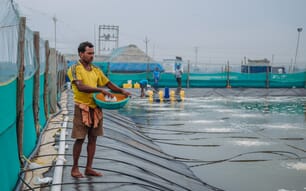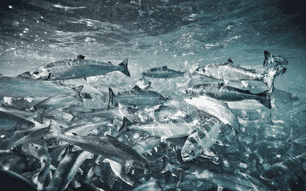
Due to the changing global climate, the contamination of seafood by bacteria of the genus Vibrio is expected to increase in prevalence, particularly in low-salinity or brackish waters, according to a recent assessment conducted by the European Food Safety Authority (EFSA). Worryingly, species found within this genus are also exhibiting increased resistance to antimicrobial treatments.
The EFSA assessment delved into the public health concerns of the increasing prevalence of the bacteria in seafoods, some species of which are pathogenic and can cause serious infections in humans. In some severe cases, infection by certain strains of V. vulnificus and V. cholerae can cause sepsis and even death.
Vibrio bacteria thrive in warm water, with increased temperatures promoting their presence and growth. Due to the increasing instability of the global climate, which is responsible for raised temperatures in many parts of the world, the frequency of Vibrio population booms is likely to increase across the EU, according to the report.
As part of the EFSA assessment, researchers analysed the occurrence Vibrio contamination in seafood within, or intended for, the EU market. 20 percent of the tested food samples were found to be contaminated with V. parahaemolyticus, with one in five of these containing pathogenic strains. A further 6 percent of samples tested positive for V. vulnificus, all identified strains of which are considered potentially pathogenic.
Whilst addressing the rising frequency of Vibrio blooms may be impractical, the EFSA report suggests a number of potential methods for reducing the prevalence of infection, such as flash-freezing or high pressure processing of seafoods before their sale. They also recommend consumers to take care when handling and cooking seafood to ensure minimal infection risk.
The assessment suggests the need for an EU-wide baseline survey for Vibrio bacteria in seafood products across production sites and retail operations so that the effects of climate change on Vibrio prevalence can be validated.




